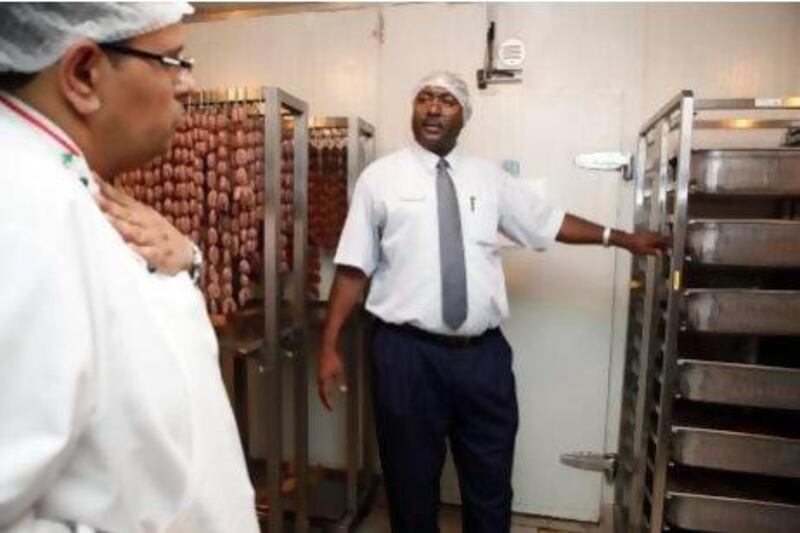DUBAI // Educating food handlers and enforcing rules is improving the health standards in the emirate's rapidly rising number of outlets, a conference heard yesterday.
Sultan Ali Al Taher, head of inspection at the municipality's food control department, said businesses were taking the message seriously.
"We've seen a huge increase in the number of places that serve or sell food and drinks in Dubai over the last few years," Mr Al Taher told the final day of the Food Chain summit.
"Due to improving education of workers and using enforcement when necessary we are seeing fewer complaints."
The municipality received 3,015 complaints from the public in 2011, compared with 2,372 last year.
But it also closed more businesses last year because of food-safety breaches - 191, from 97 in 2011.
"The closures were due to the increase in campaigns we ran in that period," said Mr Al Taher. "These aren't permanent closures. The owner is always given the opportunity to reopen if they make changes and it is approved by an inspector."
He said most complaints the department received were frivolous.
"On one occasion a man had visited a seafood buffet and decided to eat 20 shrimp," Mr Al Taher said.
"He had already eaten 19, but on the last one he complained it didn't taste the same as the ones before. "Despite this we investigate every complaint we get."
Each year between 500 and 700 food outlets open in Dubai. To keep pace the food control department is considering increasing the number of inspectors and boosting education for owners and staff.
Inspectors focus on areas where food is eaten, such as restaurants and coffee shops. About 55 per cent of the 9,981 outlets operating in Dubai last year were in this category.
"Inspection isn't the only answer , though," said Mr Al Taher.
Figures presented at the conference showed 31.8 per cent of people working in food outlets barely had an elementary level of education.
"It's not just a case of sending out inspectors everywhere to fine and close down businesses," said Bobby Krishna, senior food studies officer at the department.
"We take part in a lot of conferences and meet the owners of these companies to tell them about the food-safety code and how to implement it. We also run workshops with the workers to explain it in a simple way so that they can understand the importance of food safety."
Another tactic is to train members of staff who can pass on skills to other workers.
"Changing the culture of food safety is the main aim for us because once you make food hygiene and safety the accepted norm, then people will stick to it," said Mr Krishna.
The municipality plans to translate its food-safety information into 15 languages.






